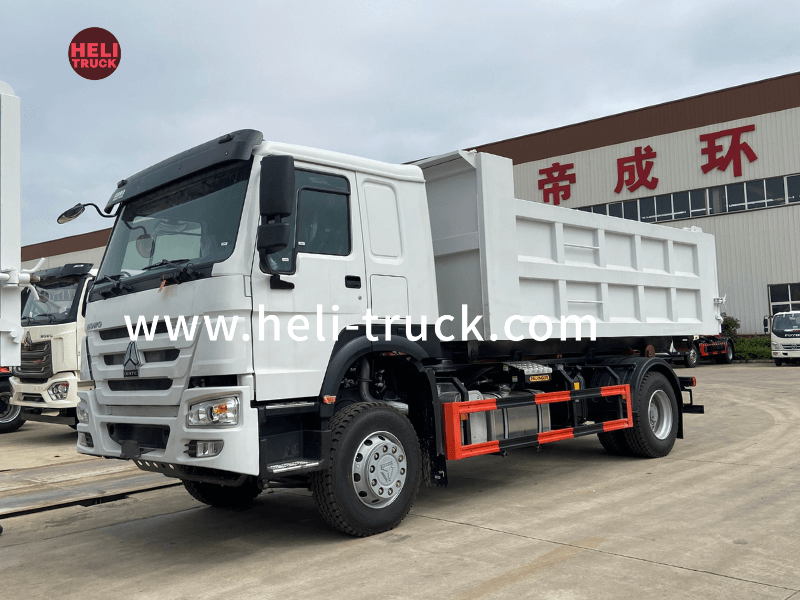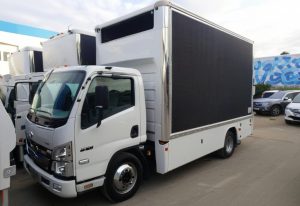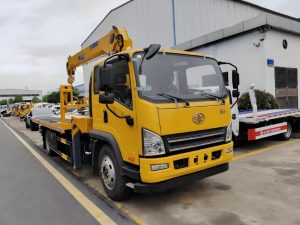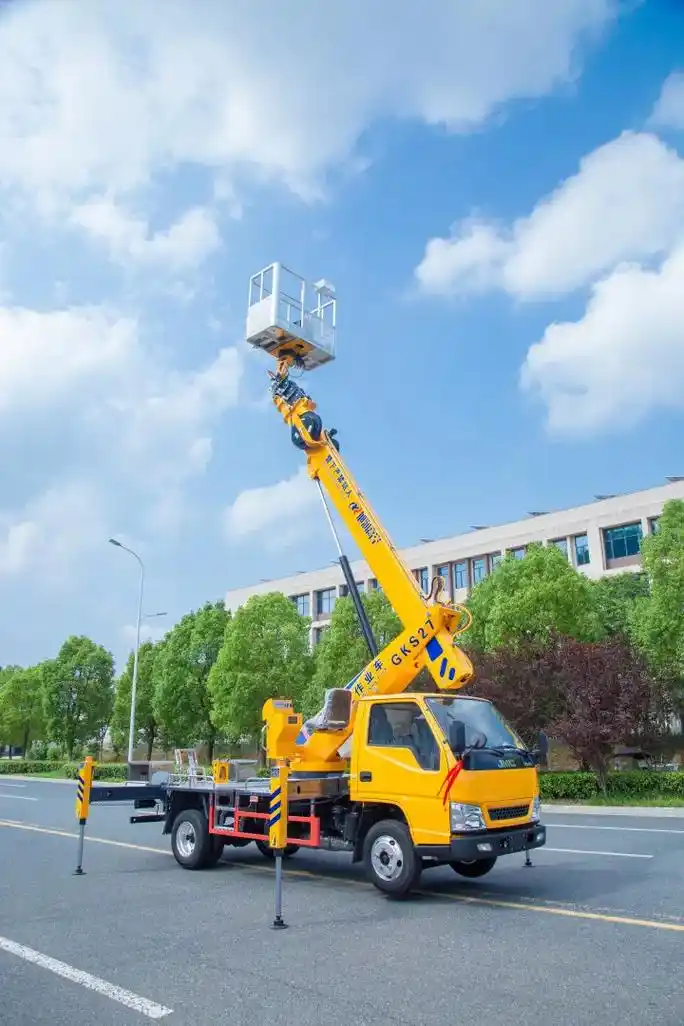Table of Contents
Toggle
When you think about the daily hustle and bustle of city life, garbage trucks might not be the first thing that pops into your mind. However, these machines are true unsung heroes, working tirelessly behind the scenes to keep our streets clean and our environment safe. Let’s take a closer look at the fascinating world of garbage trucks!
Introduction to Garbage Trucks
So, what exactly are garbage trucks? These mighty vehicles are designed specifically for collecting waste from homes, businesses, and public spaces. Without them, our cities would quickly become overwhelmed with trash. Imagine stepping out of your house only to be greeted by a mountain of rubbish—yikes! That’s why understanding these trucks is crucial.
Garbage trucks come in various shapes and sizes, each tailored for specific waste collection needs. They are not just big trucks; they represent an entire system of waste management that is essential for public health and environmental sustainability.
History of Garbage Trucks
The journey of garbage trucks is as interesting as the trash they carry. Let’s dig into their history!
Early Waste Collection Methods
Before the invention of garbage trucks, waste collection was a labor-intensive task. Imagine people hauling their waste in buckets or carts to designated dump sites! In many ancient cities, this was the norm. It was messy and inefficient, not to mention unsanitary.
In ancient Rome, for instance, citizens had to manage their waste independently. The city had a rudimentary sanitation system, but it wasn’t enough to keep the streets clean. This led to health issues, including outbreaks of diseases like cholera.
Evolution of Garbage Trucks
As cities grew, so did the need for more effective waste management solutions. By the late 19th century, the first motorized garbage trucks began to emerge. These vehicles revolutionized waste collection, allowing for quicker and more efficient pickups. Talk about progress!
The early models were often converted horse-drawn carts fitted with internal combustion engines. Over the years, improvements in technology led to specialized vehicles designed specifically for waste collection. The introduction of hydraulic systems enabled these trucks to lift and compact waste, significantly improving efficiency.
Types of Garbage Trucks
Just like there are different types of cars for different purposes, there are also various types of garbage trucks tailored for specific tasks. Let’s explore a few common ones!
Front Loader Trucks
Front loader trucks are commonly used for commercial waste collection. They have large containers that can be lifted from the front, making it easy to dump waste into the truck. Think of them as the heavyweights of the garbage truck family!
These trucks are particularly useful in industrial settings where large bins are often located in hard-to-reach areas. Their design allows for quick loading without needing the driver to leave the cab.
Rear Loader Trucks
Rear loader trucks are perhaps the most familiar sight in residential neighborhoods. With their compact design and ability to be loaded from the back, they navigate tight spaces with ease. They’re like the friendly neighborhood superheroes of waste management!
Typically, these trucks have a crew that manually loads bins into the back. This allows for more flexibility in areas where bins may not be easily accessible.
Side Loader Trucks
Side loader trucks are quite innovative, allowing for automated waste collection. These trucks can pick up bins from the side, reducing the need for manual labor. It’s like having a robotic arm doing the heavy lifting!
Many cities are transitioning to side loader designs as they can operate efficiently with fewer crew members. This not only reduces labor costs but also minimizes exposure to traffic hazards for workers.
How Garbage Trucks Work
Curious about how these trucks operate? Let’s break down their inner workings!
Mechanisms and Components
Garbage trucks are equipped with several key components: hydraulic systems for lifting and dumping waste, compaction mechanisms to maximize load capacity, and onboard scales to weigh the waste collected. It’s a perfect blend of engineering and practicality!
The hydraulic systems allow operators to lift heavy loads with ease, while compaction mechanisms compress the waste to fit more into each truckload—essentially maximizing efficiency.
The Collection Process
The process begins early in the morning when garbage trucks hit the streets. They follow designated routes, stopping at each household or business to collect trash. The sound of their engines and the clanking of bins can be a familiar morning soundtrack in many neighborhoods!
For example, many cities have specific days for recycling and organic waste collection in addition to regular trash pickups. This organized approach helps residents remember when to put out their bins while allowing for better resource management.
Environmental Impact of Garbage Trucks
While garbage trucks play a crucial role in waste management, they also have an environmental footprint. Let’s discuss their impact on our planet.
Reducing Carbon Footprint
Modern garbage trucks are becoming increasingly eco-friendly. Many cities are investing in alternative fuel sources, such as compressed natural gas (CNG) or even electric vehicles, to reduce emissions. This shift is essential in combating climate change and protecting our environment!
Some municipalities have reported significant reductions in greenhouse gas emissions by transitioning their fleets to cleaner alternatives. Additionally, using biofuels can further enhance sustainability efforts.
Innovations in Eco-Friendly Technology
Innovations in technology are making garbage trucks smarter and greener. For example, some models are now equipped with sensors that optimize collection routes based on real-time data. This not only saves fuel but also reduces wear and tear on the vehicle—talk about a win-win situation!
Furthermore, advancements in materials science have led to lighter and more durable truck bodies that improve fuel efficiency without sacrificing strength.
The Role of Garbage Trucks in Urban Infrastructure
Garbage trucks do more than just collect waste; they play an essential role in maintaining urban infrastructure. Let’s explore their contributions further!
Community Health and Hygiene
Clean streets contribute to better community health. By ensuring timely waste collection, garbage trucks help prevent pest infestations and reduce pollution—key factors in maintaining public health. Wouldn’t you agree that having clean surroundings makes us feel better?
Improper waste disposal can lead to significant health risks, including attracting rodents and insects that carry diseases. Regular collection helps mitigate these risks.
Job Creation and Economic Impact
The garbage truck industry also creates jobs—from drivers to maintenance personnel, countless individuals depend on this sector for their livelihoods. Plus, efficient waste management can boost local economies by keeping neighborhoods attractive for residents and businesses alike!
Additionally, the presence of well-managed waste services can enhance property values in neighborhoods, creating a positive feedback loop for local economies.
Challenges Faced by Garbage Trucks
Despite their importance, garbage trucks face numerous challenges daily. Let’s take a closer look at some of these hurdles!
Traffic and Accessibility Issues
Maneuvering through congested streets can be a significant challenge for garbage trucks. Their large size means they need ample space to operate, which isn’t always available in busy urban environments. It’s like trying to navigate a boat through a crowded harbor—definitely not easy!
This often leads to delays in collection schedules and can frustrate residents who expect timely service.
Safety Concerns for Operators
Safety is paramount for garbage truck operators who often work in unpredictable conditions. From busy roads to inclement weather, these drivers must stay vigilant to ensure their safety as well as that of pedestrians and other motorists. It’s a tough job that requires constant focus and attention!
To address these concerns, many cities are implementing training programs focused on safety protocols and defensive driving techniques tailored specifically for waste collection routes.
The Future of Garbage Trucks
As technology continues to evolve, so too does the world of garbage trucks. What does the future hold for these essential vehicles?
Autonomous Garbage Trucks
Imagine a world where garbage trucks operate without human drivers! Autonomous technology is being tested in various locations, which could transform how we manage waste collection in the future—making it safer and more efficient!
Some pilot programs are already underway with promising results. Autonomous systems could reduce labor costs while improving operational efficiency by using algorithms that determine optimal routes.
Smart Waste Management Systems
Smart technology isn’t just for homes; it’s making its way into waste management too! Smart bins equipped with sensors can alert garbage trucks when they’re full, ensuring timely pickups and preventing overflow—a smart solution for a common problem!
This innovation could revolutionize urban waste management by allowing municipalities to allocate resources more effectively based on actual needs rather than fixed schedules.
Conclusion
In conclusion, garbage trucks are much more than just big vehicles that collect our trash—they’re vital components of our urban ecosystems! From keeping our communities clean to embracing eco-friendly innovations, these machines truly deserve recognition as unsung heroes in our daily lives. So next time you see one on your street, give it a wave!
FAQs About Garbage Trucks
- What types of waste can garbage trucks collect? Most garbage trucks are designed to collect municipal solid waste, including household trash and recyclables.
- How often do garbage trucks collect waste? Collection schedules vary by location but typically occur weekly or bi-weekly for residential areas.
- Are there electric garbage trucks? Yes! Many cities are adopting electric garbage trucks to reduce emissions.
- What happens to the waste after it’s collected? Waste is taken to landfills or recycling facilities where it is sorted and processed.
- How can I report issues with my garbage collection? Contact your local waste management department or city services to report any issues with collection schedules or missed pickups.







